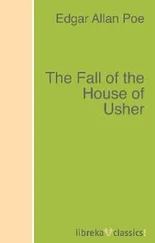Charles Bradlaugh - The Impeachment of the House of Brunswick
Здесь есть возможность читать онлайн «Charles Bradlaugh - The Impeachment of the House of Brunswick» — ознакомительный отрывок электронной книги совершенно бесплатно, а после прочтения отрывка купить полную версию. В некоторых случаях можно слушать аудио, скачать через торрент в формате fb2 и присутствует краткое содержание. Жанр: foreign_prose, на английском языке. Описание произведения, (предисловие) а так же отзывы посетителей доступны на портале библиотеки ЛибКат.
- Название:The Impeachment of the House of Brunswick
- Автор:
- Жанр:
- Год:неизвестен
- ISBN:нет данных
- Рейтинг книги:4 / 5. Голосов: 1
-
Избранное:Добавить в избранное
- Отзывы:
-
Ваша оценка:
- 80
- 1
- 2
- 3
- 4
- 5
The Impeachment of the House of Brunswick: краткое содержание, описание и аннотация
Предлагаем к чтению аннотацию, описание, краткое содержание или предисловие (зависит от того, что написал сам автор книги «The Impeachment of the House of Brunswick»). Если вы не нашли необходимую информацию о книге — напишите в комментариях, мы постараемся отыскать её.
The Impeachment of the House of Brunswick — читать онлайн ознакомительный отрывок
Ниже представлен текст книги, разбитый по страницам. Система сохранения места последней прочитанной страницы, позволяет с удобством читать онлайн бесплатно книгу «The Impeachment of the House of Brunswick», без необходимости каждый раз заново искать на чём Вы остановились. Поставьте закладку, и сможете в любой момент перейти на страницу, на которой закончили чтение.
Интервал:
Закладка:
The eldest son of George II. was Frederick, born in 1706, and who up to 1728 resided permanently in Hanover. Lord Hervey tells us that the King hated his son Frederick, and that the Queen Caroline, his mother, abhorred him. To Lord Hervey the Queen says: "My dear Lord, I will give it you under my hand, if you are in any fear of my relapsing, that my dear first-born is the greatest ass, and the greatest liar, and the greatest canaille and the greatest beast in the whole world; and that I most heartily wish he were out of it." This is a tolerably strong description of the father of George HI. from the lips of his own mother. Along with this description of Frederick by the Queen, take Thackeray's character of George II.'s worthy father of worthy son: "Here was one who had neither dignity, learning, morals, nor wit – who tainted a great society by a bad example; who in youth, manhood, old age, was gross, low, and sensual."
In 1705, when only Electoral Prince of Hanover, George had married Caroline, daughter of the Margrave of Anspach, a woman of more than average ability. Thackeray describes Caroline in high terms of praise, but Lord Chesterfield says that "she valued herself upon her skill in simulation and dissimulation… Cunning and perfidy were the means she made use of in business." The Prince of Anspach is alleged by the Whimperer to have raised some difficulties as to the marriage, on account of George I. being disposed to deny the legitimacy of his son, and it is further pretended that George I. had actually to make distinct acknowledgment of his son to King William III. before the arrangements for the Act of Settlement were consented to by that King. It is quite clear from the diary of Lady Cowper, that the old King's feeling towards George II. was always one of the most bitter hatred.
The influence exercised by Queen Caroline over George II. was purely political; and Lord Hervey declares that "wherever the interest of Germany and the honor of the Empire were concerned, her thoughts and reasonings were as German and Imperial as if England had been out of the question."
A strange story is told of Sir Robert Walpole and Caroline. Sir Robert, when intriguing for office under George I., with Townshend, Devonshire, and others, objected to their plans being communicated to the Prince of Wales, saying,
"The fat b – h, his wife, would betray the secret and spoil the project." This courtly speech being made known by some kind friend to the Princess Caroline, considerable hostility was naturally exhibited. Sir Robert Walpole, who held the doctrine that every person was purchasable, the only question being one of price, managed to purchase peace with Caroline when Queen. When the ministry suspended, "Walpole not fairly out, Compton not fairly in," Sir Robert assured the Queen that he would secure her an annuity of £100,000 in the event of the King's death, Sir Spencer Compton, who was then looked to as likely to be in power, having only offered £60,000. The Queen sent back word, "Tell Sir Robert the fat b – h has forgiven him," and thenceforth they were political allies until the Queen's death in 1737.
The domestic relations of George II. were marvellous. We pass with little notice Lady Suffolk, lady-in-waiting to the Queen and mistress to the King, who was sold by her husband for a pension of £12,000 a year, paid by the British tax-payers, and who was coarsely insulted by both their Majesties. It is needless to dwell on the confidential communications, in which "that strutting little sultan George II.," as Thackeray calls him, solicited favors from his wife for his mistress, the Countess of Walmoden; but to use the words of the cultured Edinburgh Review , the Queen's "actual intercession to secure for the King the favors of the Duchess of Modena precludes the idea that these sentiments were as revolting to the royal Philaminte as they would nowadays be to a scavenger's daughter. Nor was the Queen the only lady of the Royal Family who talked openly on these matters. When Lady Suffolk was waning at court, the Princess Royal could find nothing better to say than this: 'I wish with all my heart that he (i. e., the King) would take somebody else, that Mamma might be relieved from the ennui of seeing him forever in her room.'"
Lady Cowper in her diary tells us that George II., when Prince of Wales, intrigued with Lady Walpole, not only with the knowledge of the Princess Caroline, but also with connivance of the Prime Minister himself. Lord Hervey adds that Caroline used to sneer at Sir Robert Walpole, asking how the poor man – " avec ce gros corps, ces jambes enflees et ce villain ventre " – could possibly believe that any woman could love him for himself. And that Sir Robert retaliated, when Caroline afterwards complained to him of the King's cross temper, by telling her very coolly that "it was impossible it could be otherwise, since the King had tasted better things," and ended by advising her to bring pretty Lady Tankerville en rapport with the King.
In 1727 an Act was passed, directed against workmen in the woollen trade, rendering combination for the purpose of raising wages unlawful. Some years afterwards, this Act was extended to other trades, and the whole tendency of the Septennial Parliament legislation manifests a most unfortunate desire on the part of the Legislature to coerce and keep in subjection the artisan classes.
In February, 1728, the celebrated "Beggar's Opera," by Gay, was put on the stage at the Lincoln's Inn Fields Theatre, and, being supposed to contain some satirical reflections on court-corruption, provoked much displeasure on the part of Royalty. The Duchess of Queensborough, who patronized Gay, being forbidden to attend court, wrote thus: "The Duchess of Queensborough is surprised and well pleased that the King has given her so agreeable a command as forbidding her the court… She hopes that, by so unprecedented an order as this, the King will see as few as she wishes at his court, particularly such as dare speak or think truth."
In 1729, £115,000 was voted by Parliament for the payment of the King's debts. This vote seems to have been obtained under false pretences, to benefit the King, whose "cardinal passion," says Phillimore, "was avarice."
The Craftsman during the first decade of the reign, fiercely assailed the Whig ministry for "a wasteful expenditure of money in foreign subsidies and bribes;" and in his place in the House of Commons William Pitt, "the great Commoner," in the strongest language attacked the system of foreign bribery by which home corruption was supplemented.
The rapidly increasing expenditure needed every day increased taxation, and a caricature published in 1732 marks the public feeling. A monster (Excise), in the form of a many-headed dragon, is drawing the minister (Sir Robert Walpole) in his coach, and pouring into his lap, in the shape of gold, what it has eaten up in the forms of mutton, hams, cups, glasses, mugs, pipes, etc.
"See this dragon Excise
Has ten thousand eyes,
And five thousand mouths to devour us;
A sting and sharp claws,
With wide gaping jaws,
And a belly as big as a store-house."
Beginning with wines and liquors, —
"Grant these, and the glutton
Will roar out for mutton,
Your beef, bread, and bacon to boot;
Your goose, pig, and pullet,
He'll thrust down his gullet,
Whilst the laborer munches a root."
In 1730 Mr. Sandys introduced a Bill to disable pensioners from sitting in Parliament. George II. vigorously opposed this measure, which was defeated. In the King's private notes to Lord Townshend, Mr. Sandys' proposed act is termed a "villanous measure," which should be "torn to pieces in every particular."
It was in 1732 that the Earl of Aylesford, a Tory peer, declared that standing armies in time of peace were "against the very words of the Petition of Rights ," and that "all the confusions and disorders which have been brought upon this kingdom for many years, have been all brought upon it by means of standing armies." In 1733 Earl Strafford affirmed that "a standing army" was "always inconsistent with the liberties of the people;" and urged that "where the people have any regard for their liberties, they ought never to keep up a greater number of regular forces than are absolutely necessary for the security of the Government." Sir John Barnard declared that the army ought not to be used on political questions. He said: "In a free country, if a tumult happens from a just cause of complaint, the people ought to be satisfied; their grievances ought to be redressed; they ought not surely to be immediately knocked on the head because they may happen to complain in an irregular way." Mr. Pulteney urged that a standing army is "a body of men distinct from the body of the people; they are governed by different laws; blind obedience and an entire submission to the orders of their commanding officer is their only principle. The nations around us are already enslaved by those very means; by means of their standing armies they have every one lost their liberties; it is indeed impossible that the liberties of the people can be preserved in a country where a numerous standing army is kept up."
Читать дальшеИнтервал:
Закладка:
Похожие книги на «The Impeachment of the House of Brunswick»
Представляем Вашему вниманию похожие книги на «The Impeachment of the House of Brunswick» списком для выбора. Мы отобрали схожую по названию и смыслу литературу в надежде предоставить читателям больше вариантов отыскать новые, интересные, ещё непрочитанные произведения.
Обсуждение, отзывы о книге «The Impeachment of the House of Brunswick» и просто собственные мнения читателей. Оставьте ваши комментарии, напишите, что Вы думаете о произведении, его смысле или главных героях. Укажите что конкретно понравилось, а что нет, и почему Вы так считаете.











